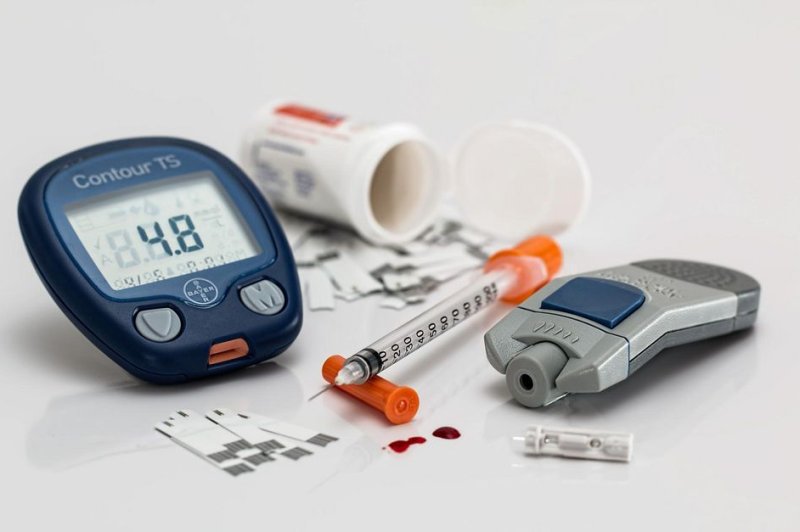A personalized approach to kidney screening for people with Type 1 diabetes may reduce the time that chronic kidney disease -- for which they are at high risk -- goes undetected, the National Institutes of Health says. Photo by
Steve Buissinne/
Pixabay
Nov. 2 (UPI) -- A personalized approach to kidney screening for people with Type 1 diabetes may reduce the time that chronic kidney disease -- for which they are at high risk -- goes undetected, the National Institutes of Health said Wednesday.
The NIH-funded researchers created a new screening schedule to optimize early detection and testing frequency.
Type 1 diabetes, which usually develops in children, teens and young adults, is far less common than Type 2 diabetes, accounting for roughly 5% to 10% of the 37 million-plus Americans with a condition that affects how the body uses blood sugar, according to the Centers for Disease Control and Prevention.
Chronic kidney disease screening recommendations call for annual urinary albumin screening for people who have had Type 1 diabetes for at least five years.
The new findings, published Wednesday in the journal Diabetes Care, suggest that annual urinary albumin excretion rate testing in people with Type 1 diabetes who are at low risk of developing chronic kidney disease could be performed less frequently, while those at high risk could be tested more frequently to facilitate earlier detection.
The new model indicates which people with Type 1 diabetes are high risk and should be tested every six months, and who are low risk and should be tested every two years, instead of annually.
The analysis for the new screening model was done by the Epidemiology of Diabetes Interventions and Complications study group, which is funded by NIH's National Institute of Diabetes and Digestive and Kidney Diseases.
Having too much albumin -- a protein found in the blood -- in the urine is a sign of kidney disease, an NIH news release explained. And people with Type 1 diabetes have roughly a 50% risk of developing chronic kidney disease over their lifetime -- a condition that can progress to kidney failure, requiring dialysis or a kidney transplant.
The study group's model identified three levels of risk associated with a later chronic kidney disease diagnosis, using 30-plus years of participant data on blood glucose measures from 1,334 participants in the NIDDK-funded Diabetes Control and Complications Trial and a follow-up study. The former study took place from 1983 to 1993.
People with Type 1 diabetes who have an albumin excretion rate of 21 milligrams to 30 milligrams per 24 hours and a hemoglobin A1c level of at least 9% -- well beyond the normal range -- are at high risk for developing chronic kidney disease and could be screened for urine albumin every six months, the researchers said.
This could reduce high-risk people's time spent with undetected kidney disease and get appropriate therapy to them as early as possible.
By contrast, people with an albumin excretion rate of at most 10 milligrams per 24 hours and a hemoglobin A1c level of at most 8% are at lower risk for developing chronic kidney disease and could be screened every two years, the researchers said.
And everyone else who has had Type 1 diabetes for at least five years could continue to be screened annually.















